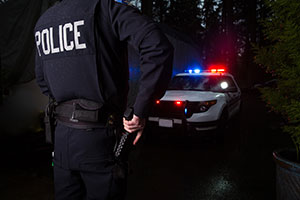As the use of psychology in the defense of police officer shootings becomes more common, a debate has arisen over whether it is appropriate to allow expert testimony on the connection between stress and deadly force.
Defense of Jason Van Dyke
Jason Van Dyke was a white police officer who shot Laquan McDonald, a black teenager from Chicago’s West Side in 2014. Van Dyke shot McDonald 16 times within seconds of exiting his police vehicle. McDonald was holding a knife that he had reportedly used to damage the police vehicle. However, McDonald was already walking away from the police when he was shot. The entire shooting was filmed by another police vehicle’s dashboard camera. Van Dyke was charged with first-degree murder and numerous other charges in connection with the shooting.
At Van Dyke’s trial, Florida police psychologist Laurence Miller took the stand in his defense. Miller holds a Ph.D. from CUNY’s department of psychology, where he specialized in neurocognition. He has his own private practice in Florida and has been consulting with police departments for almost 20 years.
Miller asked the jurors to focus on Van Dyke’s perception of the shooting. He explained that life-and-death situations can cause the body’s stress response to distort cognition, perception, and memory. Miller opined that this stress response can lead to a “deadly force mindset” in police officers, where the officer will feel that his or her only option is to kill or be killed.
The jury ultimately found Van Dyke guilty of 16 counts of aggravated battery and second-degree murder, which is a lesser charge than first-degree murder. This lesser verdict may suggest that the jury believed Miller’s contention that Van Dyke perceived himself to be in danger.
The Argument Against Allowing Deadly Force Psychology
When a criminal defendant is not a police officer, courts tend to skeptical about the admissibility of “mindset” evidence or other testimony from psychologists to excuse violent behavior. Courts seem inclined to believe that psychologists should be permitted to testify about what probably motivated a police officer to shoot a nonthreatening suspect.
However, the psychology of deadly force is not an exact science. Some psychologists question the connection that stress has to deadly force. While police officers do experience cognitive and perceptual impairments such as tunnel vision or dissociation during deadly encounters, researchers do not know much about how stress affects an officer’s decision to use deadly force.
Psychologist Phillip Atiba Goff, a professor at the City University of New York’s John Jay College of Criminal Justice and cofounder and president of the Center for Policing Equity, a think tank that studies racial disparities in criminal justice policy, commented: “The defense used what seems to be an exculpatory argument, though not actual data, to say, ‘You shouldn’t be responsible because this is the level of stress on the job’… This is a bad area for science to be in.” Many people have stressful jobs, but courts do not routinely allow a “stress” defense to murder when the defendant is not a police officer.
Kimberley McClure, a professor of psychology and law at Western Illinois University noted that stress responses are highly individualized. McClure said that Miller should have to clearly establish the factors that may have activated the HPA-axis during the seconds before Van Dyke got out of his car. Little peer-reviewed research connects perceptive distortions to the decision to fire a lethal weapon. McClure noted that expert witnesses have the responsibility to help judges, attorneys, and juries understand the knowledge that is out there, but cautioned that experts should also have “an appreciation for gaps in the information we have.”




